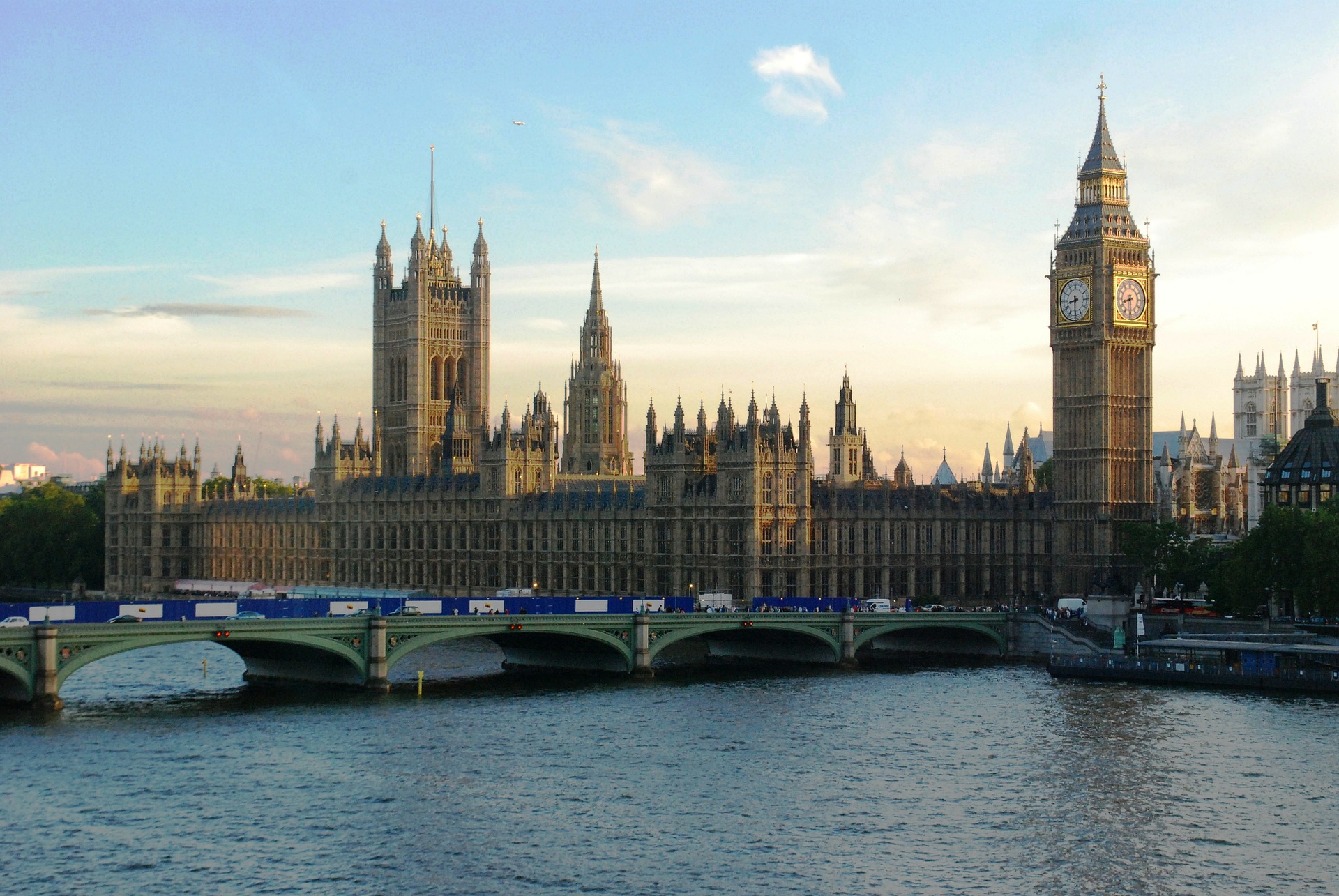
Clear the Lobby: What laws are MPs voting on this week? – w/c 7th October
October 6, 2019
5 Top Tips for the Ultimate GDL Personal Statement
October 10, 2019Employment Law: State Pension Age
High Court Rules Against State Pension Age Challenge
Reported by Ellena Mottram
In the 1995 Pensions Act a timetable was set out to equalize the gap which existed between men and women qualifying to receive state pension. Originally, the change was timetabled to occur between 2010 and 2020. However, in the 2011 Pensions Act, this change was brought forward to 2018, meaning the qualifying age for women rose to 65. This is set to rise to 66 by 2020 and 67 by 2028.
Women born in the 1950’s (specifically those born between April 1950 – April 1953), who had been expecting to receive their state pension at 60, argued the change was unfair as it did not allow them to make the required adjustments to cope with the delay in receipt of their state pension. It was argued the delay would result in financial difficulty for many women and it is estimated that around 3.8 million women have been affected by the changes.
For many of the campaigners, the dispute was not about the rise in the state pension age – many agree with bringing in equality between the genders. Rather, the dispute centered on how the government introduced the change, specifically that it did not allow enough time for women to adjust to the changes in the law. Campaigners alleged that the changes to the retirement age amounted to discrimination on the grounds of their age and gender.
It was alleged by members of the Backto60 group that not receiving their state pension at the age of 60 affected them disproportionately. This disproportional impact arose, as argued by the campaigners, because many women working during the period had taken time out to care for children, were paid less than men, and therefore could not save as much for their occupational pensions. As their occupational pensions were therefore lower, the change to the state pension programme disproportionately affected them. The High Court has however ruled against this argument. In their judgment, the Judges rejected that the alteration to the law amounted to discrimination on the grounds of sex. Instead, they highlighted the changes ‘equalizes a historic asymmetry between men and women and thereby corrects historic discrimination against men’.
As well as ruling against the campaigners that the change in the law was discriminatory on the grounds of sex, they also rejected the argument the change was discriminatory of the basis of age. Highlighting that even if it was discriminatory on the grounds of age, it was discrimination that could be justified on the facts.
Additionally, aside from the issue of the changes being discriminatory, the Judges highlighted there is no specific law setting out specific notification relating to pension age changes. As a result, in the eyes of the law, the Government had done nothing wrong in altering the original timetable for making changes to the state pension age.
Please find out more here or here.
Law: Hong Kong’s Anti-Mask Law
Hong Kong: Anti-mask Law
Reported by Laurence Tsai
Following the proposal of a controversial Extradition Bill in Hong Kong, which would have allowed people to be sent to trial in mainland China, Hong Kong has been in a state of chaos for several months with well over two million citizens protesting on the streets. As a result of the climactic protests, Hong Kongers wish for their government to meet their five demands – only then will chaos in Hong Kong cease to rein.
Carrie Lam, Hong Kong’s chief executive, has since withdrawn the bill, yet the protesters are still waiting for other demands to be carried out, including an independent investigation into brutal acts of violence by the police against protesters. Significant incidents include the police shooting a citizen in the eye, and the recent incident where a student was shot nearly two-inches from his heart with live rounds. The boy remains stable at a hospital, yet has been arrested for rioting and assaulting the police.
On 5 October 2019, Ms Lam invoked the city’s Emergency Regulation Ordnance, an emergency law created in 1922, to prohibit the protesters from wearing face masks, called the ‘anti-mask law’. Protestors wore masks to conceal their identity from the police and also to protect themselves from tear gas and pepper spray. The aim of the ban was to ‘end violence and restore order’ and Ms Lam stressed at a press conference that invoking the regulation did not mean that the city was in a ‘state of emergency’.
The measure, which permits Ms Lam to make any regulation ‘desirable in the public interest’ in a state of emergency, carries a maximum penalty of one year in jail and a fine of HK$25,000(£2,585). Anyone in a public place who refuses to remove a mask could face six months in prison and a maximum fine of HK$10,000 (£1,034).
Ms Lam successfully invoked the law by bypassing the Legislative Council, Hong Kong’s de facto parliament. Lawyers have warned that the decision could spark a constitutional crisis and may damage Hong Kong’s status as a financial centre and hurt investor confidence. Indeed, the Hang Seng index has dropped by 1.11%, indicating that Hong Kong stocks fell when Ms Lam announced the anti-mask law.
Additionally, Martin Lee, a pro-democracy lawyer who helped draft the Basic Law, criticized this maneuver, arguing that it is unconstitutional where the Hong Kong legislature itself does not enact the law.
It will certainly be interesting to see the events in Hong Kong unfold. It is clear that the city’s financial status, freedoms and other human rights are put at risk during this time of political turmoil. Only time will tell what the future of the city holds. Hopefully, Hong Kong will be able to maintain its long-standing status as an important financial centre with powerful international connections and continue to bring in attractive investment opportunities.
Law and Economy: HSBC’s new cost-cutting plan
HSBC to Dismiss up to 10,000 Employees Following its New Cost-cutting Plan
Reported by Jutha Cheewat
As part of its recent cost-cutting exercise, the Asia lender HSBC Holding Plc may axe up to 10,000 jobs.
Following the appointment, the new interim chief executive Noel Quinn seeks to tackle the ongoing problems. It was informed that his predecessor, John Flint, left because he avoided making the “difficult decisions” before.
According to the Financial Times, insiders addressed the issue, “We’ve known for years that we need to do something about our cost base, the largest component of which is people — now we are finally grasping the nettle,” “There’s some very hard modeling going on. We are asking why we have so many people in Europe when we’ve got double-digit returns in parts of Asia.”
It is expected that, if implemented, the plan would mean at least 4,700 people will be made redundant. This cost-cutting plan is said to be part of the “Project Oak” with the focus on smaller but cost-effective teams, reducing the number of high-paid roles. HSBC has not made any comment on the matter.
It could be said that such a strategy has been adopted across the banking industry as leading institutions, including Barclays and Citigroup, announced potential cuts earlier this year. In August, Deutsche Bank also stated it would approximately cut at least 18,000 jobs.
You can find out more here or here.
Law: Religious Discrimination Bill
A Religious Bill Could Have a Positive Impact on Discrimination
Reported by Emma Ducroix
The draft bill would prevent employers from having codes of conduct that ban religious speech in the workplace or on social media, on the grounds that such a ban would indirectly discriminate on the grounds of religion.
The academics’ submission noted the effect of the section is that religious speech “would have greater protection from employer intervention than any other statement or expression”.
For example, an employer with a code of conduct banning employees from publicly engaging in controversial political debates would not be able to impose the rule on a religious employee who wanted to oppose marriage equality. A gay employee, however, would be restricted from publicly supporting it.
A religious discrimination bill is unworkable for employers and will thwart policies designed to create safe and inclusive workplaces.
Furthermore, the Australian Chamber of Commerce and Industry has warned the bill does not properly define religion, meaning that Indigenous spirituality could be excluded by the common law definition while “esoteric or emerging religions” are protected.
Indeed, Australian Chamber of Commerce and Industry submitted that an employee’s religion, beliefs and practices “may not be readily apparent” to employers, making it “highly foreseeable” that an employer may unintentionally discriminate against them, and it would create an “unworkable situation for businesses in regard to employment”.
The Diversity Council’s chief executive, Lisa Annese, said the bill “would impair organisational efforts to implement diversity and inclusion policies” and would confuse businesses.
Annese suggested the bill would create “absurd situations” where homophobic comments are protected when made by an employee of a religious background but not when made by a non-religious employee.
The network recommended the ban be scrapped or replaced with a more balanced provision recognising “employees who have gained a higher profile due to their employment do have a higher level of responsibility to their employers”.
The religious discrimination bill has been panned by the Australian Human Rights Commission and civil society groups who warn it provides greater protection for religion than other protected attributes.
Even the conservative Sydney Anglican diocese has opposed the law in its current form, warning it would have the “perverse effect” of encouraging companies to threaten to withdraw sponsorship to justify restrictions on religious speech.
As for the current situation, a group of about 150 Muslim organisations called for higher protection against vilification on the grounds of religion in the bill. They called for a provision to prevent conduct which “harasses, vilifies or incites hatred or violence against” another person based on their religion, arguing this would prevent violence without precluding religious debate.
Please find out more here.



